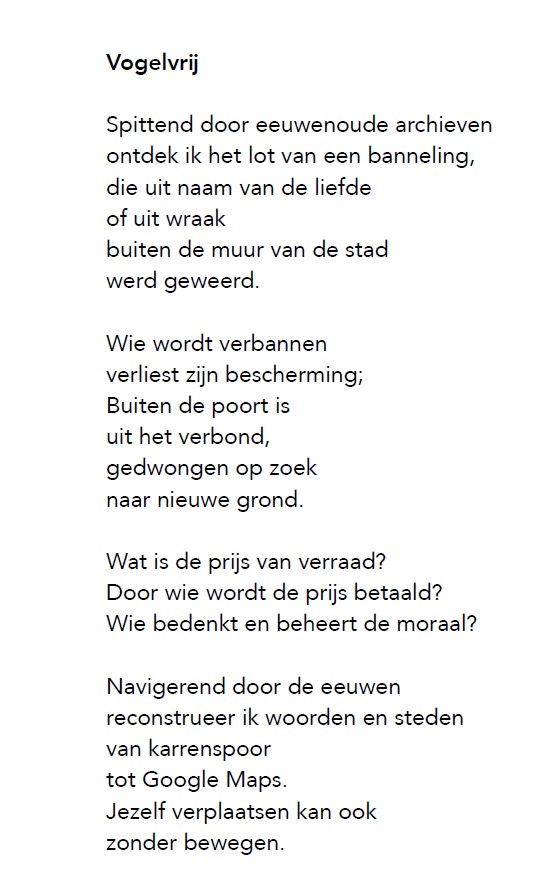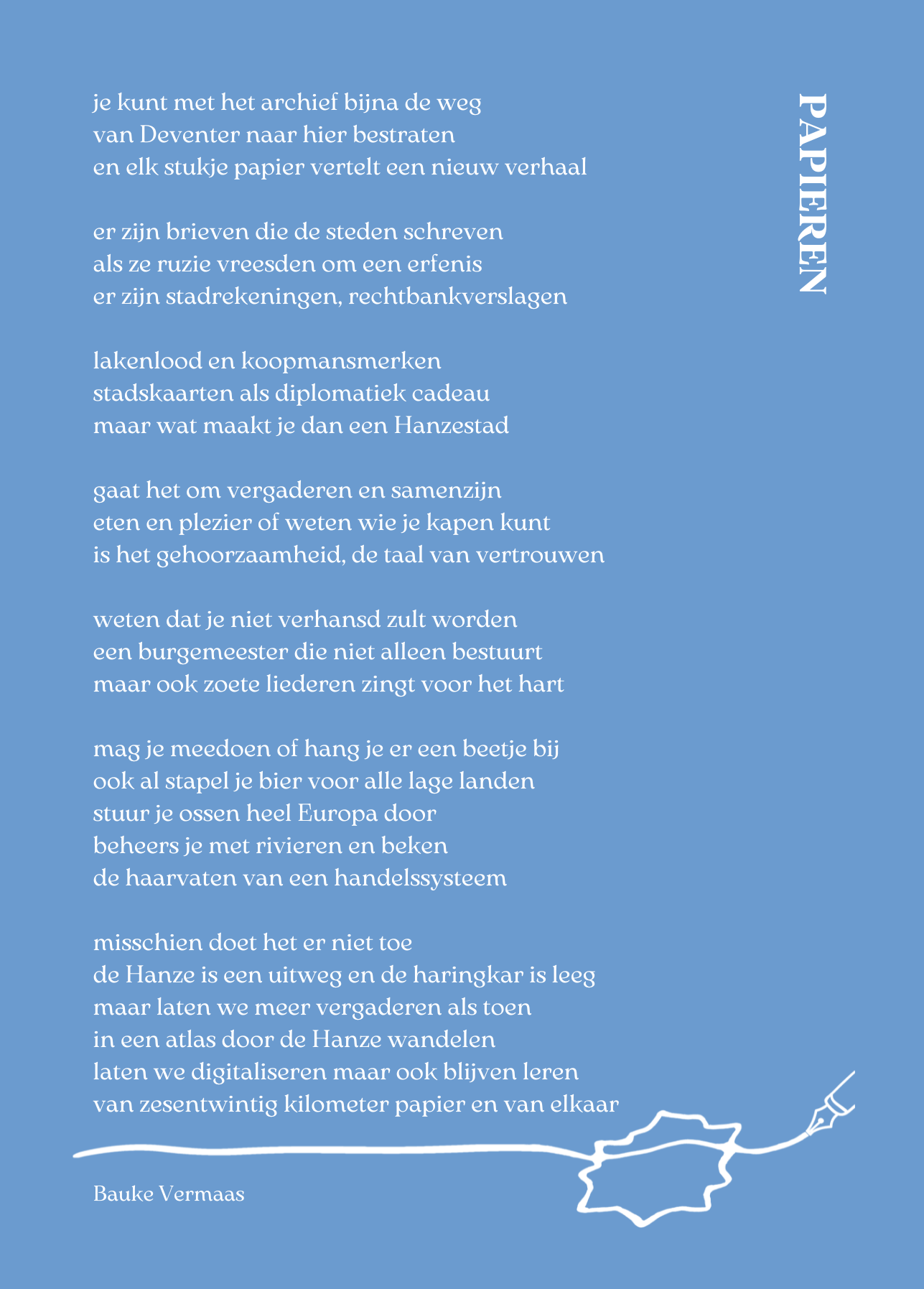PhD Defense!
Justyna Wubs-MrozewiczExcellent PhD defense by team member Christian Manger:
‘Councils, Conflicts, Correspondence: Urban Diplomacy in Reval (Tallinn) and Lübeck (c.1470–1570)’. [....]
Excellent PhD defense by team member Christian Manger:
‘Councils, Conflicts, Correspondence: Urban Diplomacy in Reval (Tallinn) and Lübeck (c.1470–1570)’. [....]
More impressions of the Hanse Symposium in Zwolle: poems by word artists Johanneke ter Stege and Bauke Vermaas, written right after the presentations!


https://collectieoverijssel.nl/hanzesymposiumzwolle/
The symposium was organised by Collectie Overijssel and our project members Ester, Christian and Justyna.[....]
... where she also explains why it was NOT a league :)
https://podfollow.com/gone-medieval/episode/65bf1f4d13614433f3f077d97b3d94de51fc401c/view[....]
Message in a Bottle. Merchants’ letters, merchants’ marks and conflict management in 1533-34. A source edition (with Stuart Jenks, Brepols 2022).
Also: check out the accompanying [....]
Attention! We’re talking about history here, and it’s important. This might be the summary of the online webinar on #historyinconflict held on June, 25th (2022), where we addressed the role of bringing up historical narratives in conflicts in the 19th-21st centuries. It was the third instalment in a series of webinars, after meetings on medieval and early modern conflicts. Now our attention has turned to modern conflicts: for instance, WWII in the Netherlands, border struggles in South America from the 19th century onwards, tensions related to religious reforms in India in the 20th century, and the perceptions of the past in post-WWII Poland or Vietnam. The insights we gained from the fascinating papers that were presented, and the discussions that followed, show that references to the past have clearly gained a foothold as powerful and versatile tools. And that they grab our attention and often create controversy.
Historians like Margaret Macmillan and Timothy Snyder have rightly pointed out that history has been used, abused and re-used many times over, sometimes in a cyclical fashion. The editors of the newly minted Journal of Applied History underline that our current engagement with the past – especially during conflicts – is a topic that in fact more than merits our attention: ‘The accumulation of crises in the new millennium, as well as the omnipresence of the instrumentalisation—and abuse—of history and historical claims in a highly polarised political climate may have increased public awareness of the value of historical thinking for the present, but these developments have also made such awareness more urgent.’ A crucial issue here is the role of professional historians: what part have they played in conflicts in the 20th century, and what role are they playing or should they play now? Is debunking myths enough, or should the spokespeople of the past be more activist or creative? [....]
We are returning to the question: what role did references to history/the past/memory play in conflicts?... We have discussed it for medieval and early modern conflicts, now it's time to tackle the 19th and 20th centuries!
Attendance by zoom: if you want to join us, send a message to j.j.wubs-mrozewicz@uva.nl[....]
Organised by Alex Collin and Suzie Hermán
info and registration: https://hansardsintheworld.wordpress.com/[....]
Did people in premodern times understand what the past was, and were they able to engage with it or even use it to their advantage? In his influential essay Vergangene Zukunft (1968, in English as Futures Past, 1985), Reinhart Koselleck argued that the premodern (Western) understanding of the past was quite different from the modern one. The past was seen as part of a sequence of cycles in nature and lifetimes, as part of a theological framework which could not be captured by secular chronology, or as a reservoir of timeless tales which could be directly applied as lessons. Judith Pollmann (Memory in early modern Europe, 2017) has rightly pointed out that this essay was a contribution to the philosophy of history, and not an analysis of premodern social practices. She showed in her work that the engagement with the past was rich, widespread and that no sharp line can be drawn between the premodern and the modern in this respect. A complex sense of – and by extension, a sophisticated use of – the past is not only a modern phenomenon.
In our series of webinars, we use the magnifying glass of conflicts to reveal this complexity and sophistication in detail. The authors of the papers demonstrate that there was a premodern understanding of the past which could be very specific and pragmatic, for instance when pointing to the dates of business deals or riots. But there was also an understanding that the past could be perceived and narrated very differently (in accounts of quarrels), that it could be negotiated (in diplomatic settings) or obliterated (in archives, landscapes or social customs). In our discussions, the magnifying glass is applied to primary sources in order to discuss the role the past played in conflicts. The connecting question of the webinars is ‘What happened in a conflict situation when one put references to the past – history – memory – precedent on the table?’ The enumerated temporal concepts, obviously, are not identical. Some are more fitting to a judicial context (precedent), while others are more fitting to a context where the experience of the past is key (memory). What they do have in common in the context we examine here by way of experiment is a clear function in handling the conflict. [....]